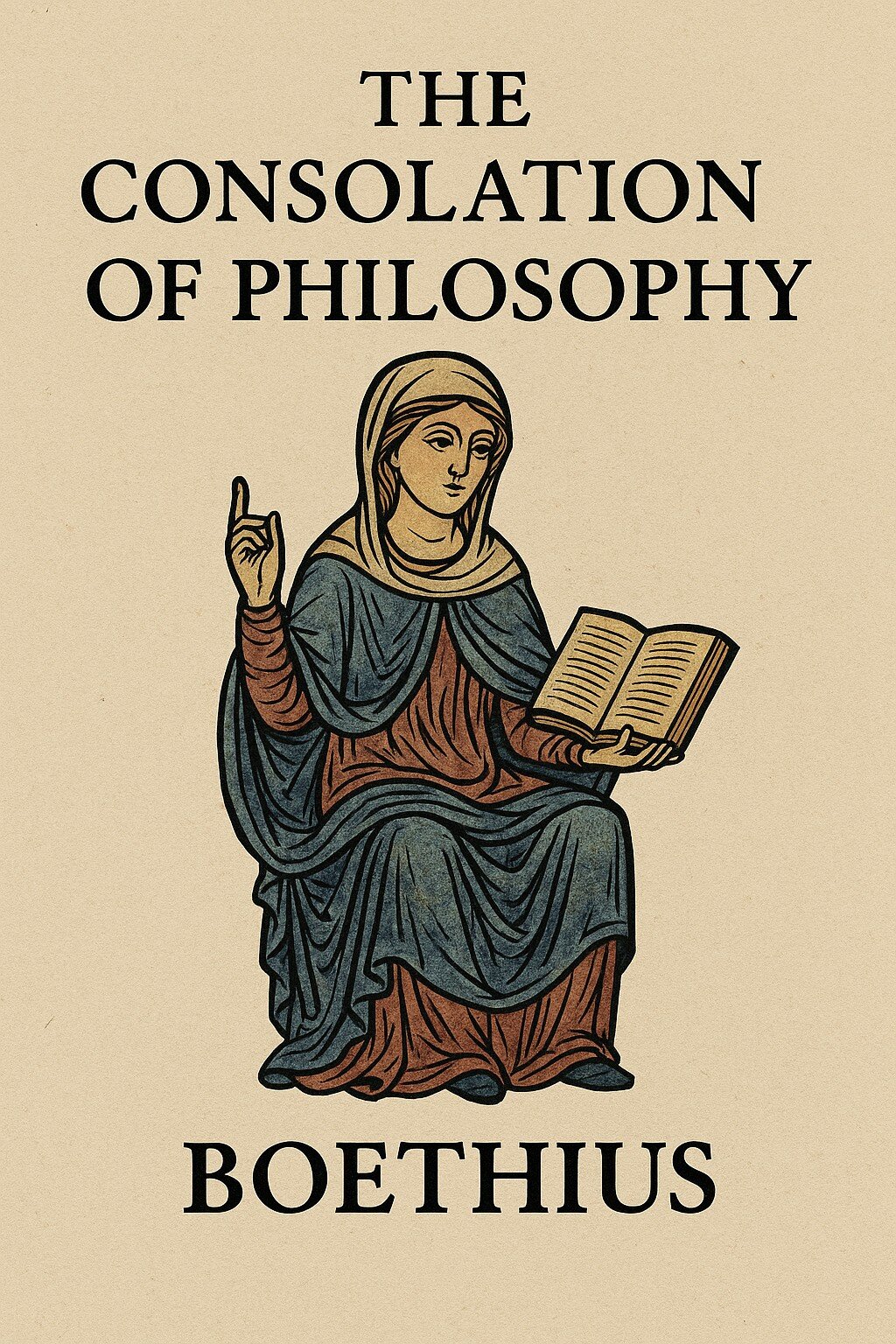The Consolation of Philosophy was written around 524 CE by Anicius Manlius Severinus Boethius while imprisoned and awaiting execution under the Ostrogothic king Theodoric. It became one of the most influential works of the Middle Ages, copied, translated, and studied by figures such as King Alfred, Chaucer, and Queen Elizabeth I.
The text takes the form of a dialogue between Boethius and Lady Philosophy. Through alternating prose and verse, Philosophy comforts him in misfortune and leads him to a higher vision of divine order, true happiness, and the fleeting nature of worldly fortune. The work does not rely directly on Christian revelation but instead integrates classical Stoic and Platonic traditions with a rational theodicy.
Its themes—fortune’s wheel, the search for stable happiness, the problem of evil, and the harmony between providence and free will—resonated through medieval and Renaissance thought. Dante cites it in The Divine Comedy, and Chaucer translated it into Middle English.
This public-domain edition presents W.V. Cooper’s 1897 English translation. Though dated in language, it remains accessible and continues to serve as an introduction to Boethius’ last and greatest work. Readers today will find not only a historical cornerstone of Western philosophy but also a timeless meditation on resilience and meaning in adversity. Download the free Public Domain book here:
